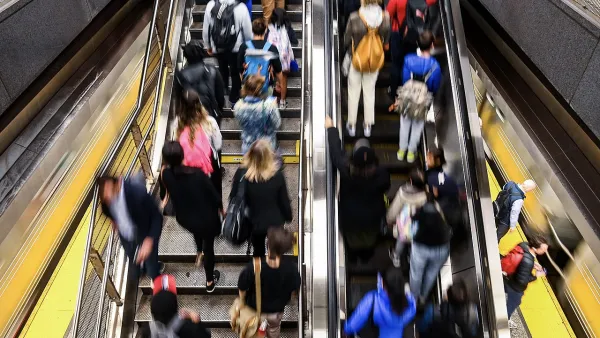The agency says a new software update will remove out-of-service buses from maps so riders aren’t ‘ghosted’ by buses that never show up.

After persistent rider complaints that D.C. Metro buses frequently disappeared from the real-time busETA tracking website, the agency says it has upgraded its software to remove out-of-service buses from user-facing maps, including busETA, Google Maps, and Transit.
According to an article by Colleen Grablick in DCist, the agency also promises to make the electronic station displays more accurate in the coming weeks, eliminating the ‘ghost buses’ that have made bus schedules unreliable.
The ‘ghost bus’ problem isn’t just an inconvenience, Grablick explains. “Stops can get more crowded when a scheduled bus doesn’t arrive, causing the next bus to stop frequently, slowing down travel times.”
The announcement follows other recent good news for D.C. transit riders: improved service starting in May, free bus rides starting next July, and a new low-income fare program.
FULL STORY: Metro’s Buses Won’t Ghost You Anymore, Transit Agency Says

Planetizen Federal Action Tracker
A weekly monitor of how Trump’s orders and actions are impacting planners and planning in America.

Chicago’s Ghost Rails
Just beneath the surface of the modern city lie the remnants of its expansive early 20th-century streetcar system.

Amtrak Cutting Jobs, Funding to High-Speed Rail
The agency plans to cut 10 percent of its workforce and has confirmed it will not fund new high-speed rail projects.

Ohio Forces Data Centers to Prepay for Power
Utilities are calling on states to hold data center operators responsible for new energy demands to prevent leaving consumers on the hook for their bills.

MARTA CEO Steps Down Amid Citizenship Concerns
MARTA’s board announced Thursday that its chief, who is from Canada, is resigning due to questions about his immigration status.

Silicon Valley ‘Bike Superhighway’ Awarded $14M State Grant
A Caltrans grant brings the 10-mile Central Bikeway project connecting Santa Clara and East San Jose closer to fruition.
Urban Design for Planners 1: Software Tools
This six-course series explores essential urban design concepts using open source software and equips planners with the tools they need to participate fully in the urban design process.
Planning for Universal Design
Learn the tools for implementing Universal Design in planning regulations.
Caltrans
City of Fort Worth
Mpact (founded as Rail~Volution)
City of Camden Redevelopment Agency
City of Astoria
City of Portland
City of Laramie





























